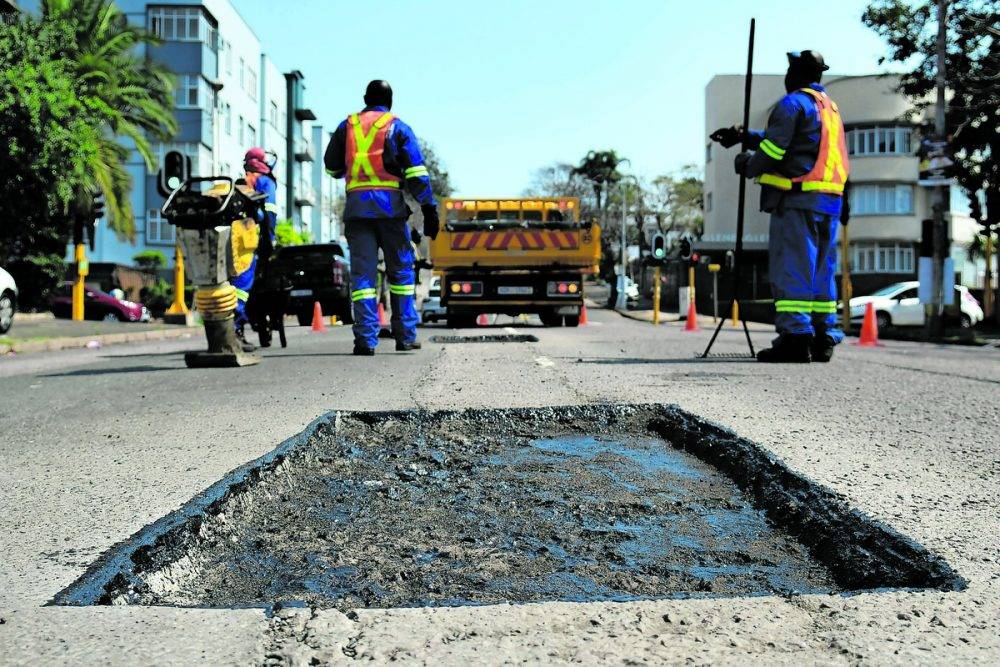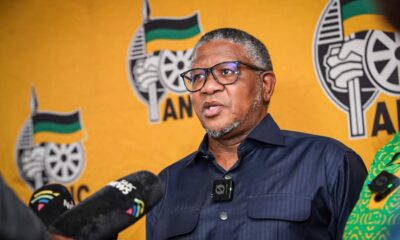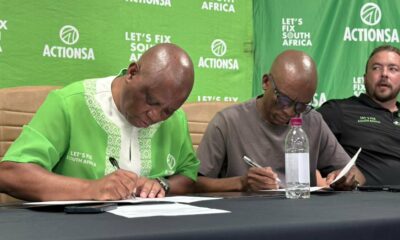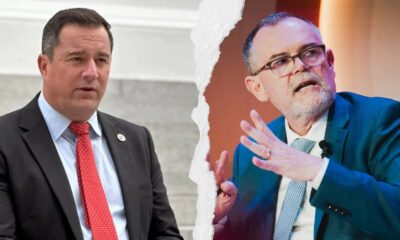News
R1.4 Billion Spent on Consultants While South Africans Wait for Services

South Africans are still facing potholes, dry taps, and broken streetlights despite municipalities spending over R1.4 billion on consultants meant to improve basic service delivery. What went wrong?
‘Unacceptable’ Spending, No Results
The chairperson of Parliament’s Cooperative Governance and Traditional Affairs (Cogta) Committee, Dr. Zweli Mkhize, didn’t mince words during a recent committee briefing. He tore into local municipalities for wasting over R1.4 billion on external consultants, most of whom delivered little to no value.
Worse still, these consultants were hired to do work that municipalities already employ full-time staff to handle. “It’s unacceptable,” said Mkhize. “This money was meant to fix water leaks, upgrade roads, and provide reliable waste removal. But all we have is failed projects, misstatements in financial reports, and angry communities.”
Unfunded Budgets, Unmet Promises
It turns out 113 municipalities are running on unfunded budgets, meaning they are planning expenses without the money to back them. That’s like promising your family a new house with no salary in sight.
The result? Delays, cost overruns, and poor-quality infrastructure, if it gets built at all. Less than a fifth of municipalities are functioning at even the most basic level of governance. “This isn’t just about mismanagement. It’s about broken trust with the people,” Mkhize said.
Behind the Numbers: Political Rot and Culture of Impunity
While the figures from the Auditor-General’s 2023/24 report are shocking, they didn’t arrive in a vacuum. Political interference, unqualified leadership, and a lack of accountability have created a culture where poor performance carries no consequences.
In some municipalities, internal audit functions are ignored. In others, contracts are illegally awarded to staff or friends of those in power. “We cannot normalize this level of failure,” Mkhize warned. “We must enforce the rules we already have.”
SALGA Responds: Progress, But Not Enough
The South African Local Government Association (SALGA) acknowledged both the problem and progress. It celebrated a small jump in clean audits—from 34 in 2022/23 to 41 this year—and highlighted that 55% of municipalities received unqualified or clean audits.
Still, SALGA’s spokesperson Tebogo Mosala admitted serious concerns: nearly half of all municipalities failed to meet audit standards. Non-submissions of financial statements, ballooning debt, and R405 billion in unpaid consumer bills are hobbling local government.
SALGA called for a rethink of the fiscal model, pointing out that municipalities only receive 9.1% of nationally raised revenue, despite being responsible for most of the services citizens depend on daily.
ActionSA: Stop Outsourcing Accountability
Matthew George of ActionSA echoed the frustration, calling the overuse of consultants “a damning indictment.” He said many of these consultants merely obscure the books, allowing mismanagement to continue unchecked.
His solution? Hire and retain skilled professionals in-house. “We already have frameworks to do this. What’s missing is the political will and enforcement.”
George also called for laws enforcing consequence management in local government, arguing that reforms are meaningless unless they carry real penalties for failure.
A Systemic Crisis, Rooted in Neglect
Dr. Harlan Cloete, a research fellow at the University of the Free State, explained the bigger picture: “This is a crisis of confidence and capability. We’ve had the Skills Development Act since 1998, but still rely on outsiders instead of growing talent from within.”
Cloete says municipalities should be using tools like integrated development plans (IDPs) and workplace skills plans to build internal capacity. “I’ve seen people rise from interns to CFOs. The path exists. What’s missing is leadership.”
He added that many municipalities are ignoring the 2021 Municipal Staff Regulations aimed at professionalising the sector. “The frameworks are there, but there’s no follow-through. Training isn’t enough. We need long-term development and real mentoring.”
Communities Left Waiting
At ground level, South Africans aren’t asking for miracles—just working streetlights, clean water, and safe roads. In towns like Madibeng, Emalahleni, and Mangaung, frustration has boiled over into protests and legal action.
On social media, the R1.4 billion figure sparked outrage. “We could’ve built clinics or fixed sewage systems with that money,” one user posted on X. “Instead, we paid consultants to do nothing.”
From Talk to Turnaround
If there’s one message all stakeholders seem to agree on, it’s this: analysis alone won’t fix South Africa’s municipal crisis. Action is overdue.
Dr. Mkhize summed it up: “We are moving from reflection to consequence. Communities deserve performance—not excuses.”
With parliamentary oversight intensifying and pressure mounting from the public, the question is no longer whether reform is needed, but who will step up and deliver it.
South Africa’s municipal system is at a crossroads. Throwing money at consultants has failed. Now, local government must invest in people, enforce the rules, and finally start delivering the basic services that millions of South Africans are still waiting for.
{Source: IOL}
Follow Joburg ETC on Facebook, Twitter , TikTok and Instagram
For more News in Johannesburg, visit joburgetc.com



























